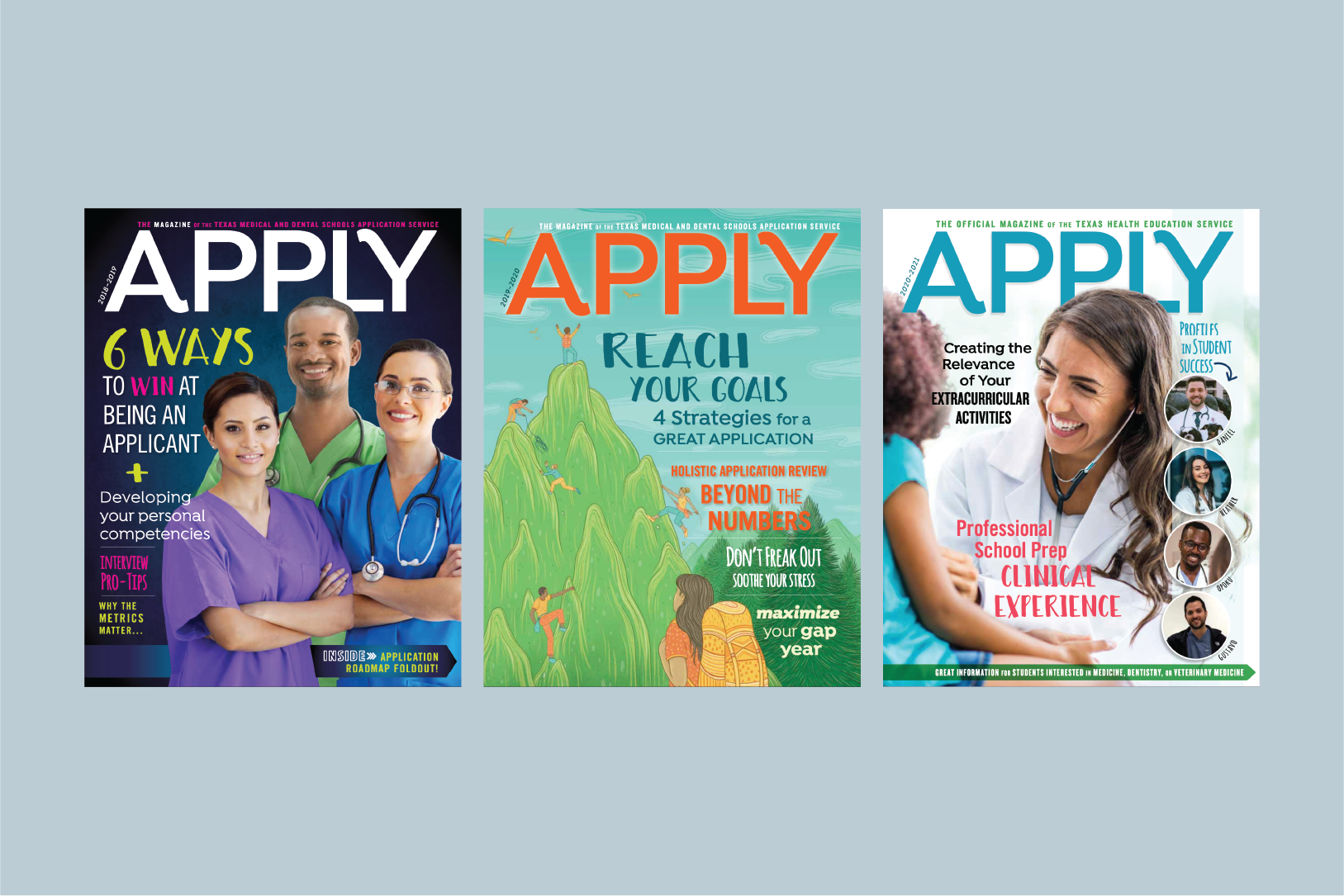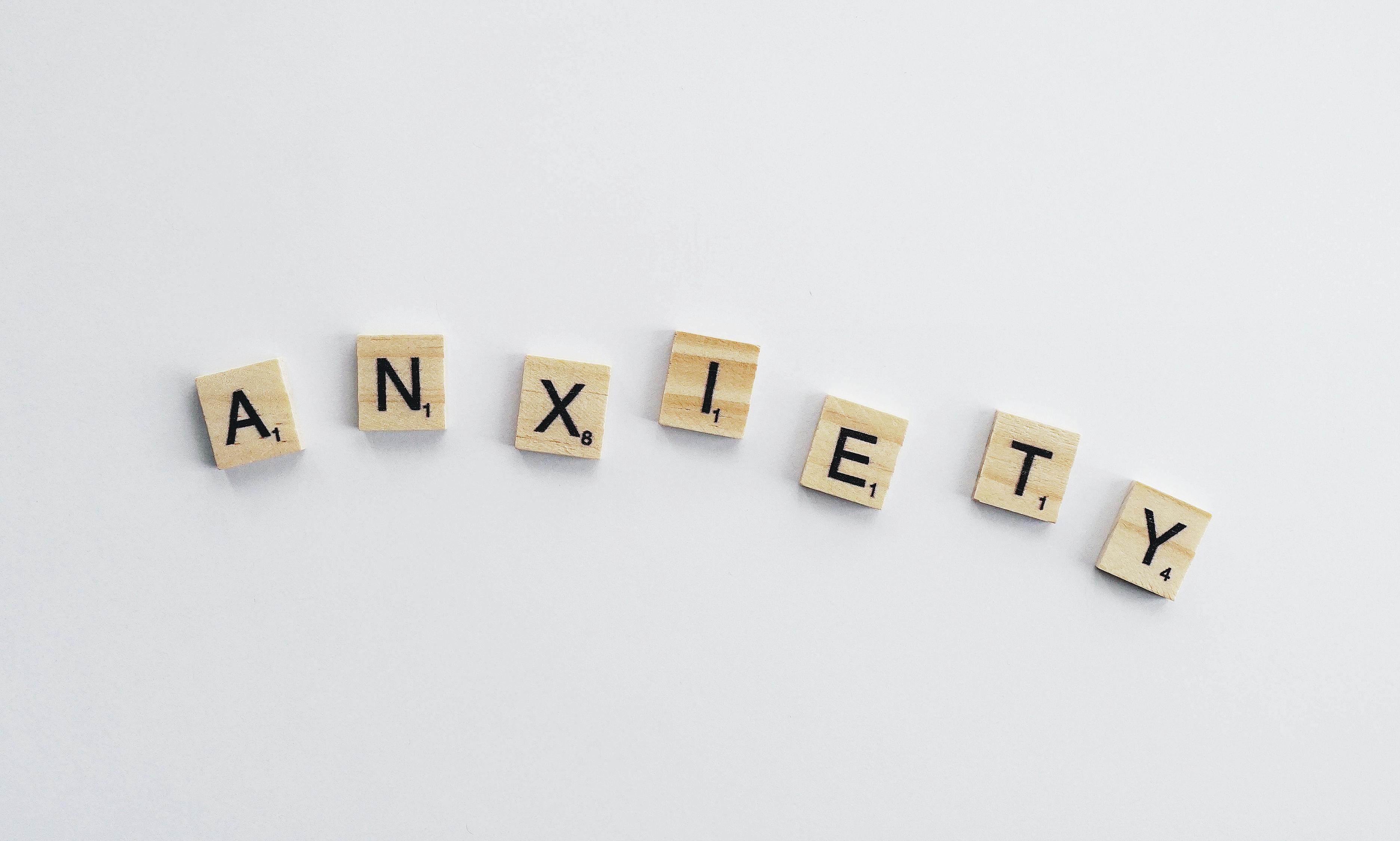TXHES Looks Ahead to TAAHP Conference 2026
TXHES looks ahead to the TAAHP Conference 2026, outlining its priorities for collaboration, advising innovation, and a statewide conversation on improving the health professions admissions cycle.


This article is going to be a bit different from some of the others you may read about applying to professional school.
As a doctoral student of learning and behavior, I have studied how anxiety impacts learning, how it affects problem-solving abilities, and how it threatens our ability to be positive, active members of our communities. Let’s be real, we all experience heightened levels of anxiety at times and most of us are aware of how it impacts our daily lives such as difficulty concentrating on important tasks, struggling to learn and synthesize new information, or uncertainty when navigating a complex admissions process (just to name a few). New research may provide an explanation for how and why anxiety sufferers could experience disruption of certain cognitive processes that are critical for everyday life, such as the ability to engage in problem-solving.
Think for just a moment about some of the decisions you will have to make in the process of obtaining admission to professional school: from constructing the best possible personal statement, to deciding on your best possible responses to questions on the TMDSAS application, to even thinking on your feet in those multiple mini interviews (MMI). You will make thousands of decisions throughout the application process (aka problem-solving), therefore it is critical to recognize signs of anxiety so that you can identify points of impact and take the necessary steps to monitor your well-being.
The Connection between Cognition and Anxiety
Anxiety sufferers who find that problem-solving and decision-making have become more difficult may not be aware that the two could be connected. To better understand how anxiety impacts the cognitive processes involved in decision making, we need to understand both Attentional Control Theory and Autobiographical Memory Specificity. Attentional Control Theory explains how, when we experience anxiety, our attention is diverted to the things we believe to be causing our anxiety (aka environmental stimuli), thereby decreasing the level of cognitive processing available for other important processes (like problemsolving), and impacting the rate of retrieval (working memory). Let’s say, for example, that you are taking an exam, such as the MCAT or DAT, while at the same time you are experiencing anxiety or a preoccupation with other stressful variables, such as mounting relationship troubles or family issues. In this state, your rate of cognitive retrieval is diminished because your attention is diverted to this source of anxiety. Attentional control is critical in order to see our problems in their truest form, without the distraction of other environmental stimuli.
The next component in the problemsolving process involves the way our brains access the information necessary to assess our problems. Our brains are thought to store specific information about our pasts in an intricate structure which progresses from the facts we know about ourselves (like where we went to school growing up), to very specific events (such as what you wore on your first day in that new job). The latter is called autobiographical memory specificity (AM), and it is a critical component in the problemsolving process because our brains use these episodic memories and our experiences from our past to precisely and efficiently frame problems.
So, you may be asking, “why is anxiety impacting my ability to problem-solve?”
Put simply, there is a correlation between our anxiety levels (particularly if this is a long-term, chronic state) and our ability to filter out the things we identify as a threat in order for our brains to more accurately concentrate on the retrieval of information necessary for solving problems. Think of it like a disruption in the mental processes of your brain, slowing down your ability to access all the important details that are locked in there – details that could help you solve a problem instead of preventing you from the level of patience and understanding required to do so effectively. In other words, when your anxiety levels are high, your brain is working with incredible inefficiency.
General Anxiety and Social Decision-Making
General anxiety not only impacts your ability to devise solutions to problems that arise in your life as a student or a professional, but it can also impact problem-solving abilities within your social life as well. So, figuring out the best way to handle the conflict with that one friend becomes even more difficult when experiencing anxiety and may explain your irrational response to the situation (i.e. losing your temper). The concern for sufferers of chronic anxiety is that their condition remains unchecked and that they may neglect to pursue help, thinking that their anxiety is temporary or perhaps even confusing it with other conditions or issues. So oftentimes, individuals self-medicate or wait until they experience a meltdown before getting help.
Let me be clear—I am not a doctor, psychologist, or licensed professional counselor. This article is not meant to help you diagnose any issues you are experiencing. My objective is to help you think about behaviors that you, or perhaps even a friend, may be experiencing and to encourage you to seriously consider reaching out for help, particularly if you recognize that problem-solving has become more difficult and you think it may be connected to anxiety.
Key Takeaway #1: Recognize when and why it is time to get help.
I recently conducted an interview with a school administrator who described how many of her high performing students struggle to admit when there is a problem and will allow their symptoms to significantly worsen before reaching out for help. If you sense that anxiety is impacting you in any way, shape, or form, then it is best to reach out for professional help. You may think, “My anxiety only impacts me, so what does it matter?” I think this is a false line of inquiry that we often ask ourselves in an attempt to avoid doing the right thing. But first, consider just how important you are to so many people in your life. Then think about your objective to become an independent health practitioner. It is important to consider how these long-lasting symptoms can impact your effectiveness and threaten your ability to achieve your goals.
Key Takeaway #2: There’s Definitely Hope.
You may be thinking, “this all sounds a bit scary, what if it’s too late?” It’s never too late. The important thing to remember here is not to neglect your need to seek help. There are a whole host of helpful coping mechanisms and other options available for individuals who suffer from anxiety. Remember, the concern is that over time, and if left untreated, anxiety can begin to impact the cognitive processes important for problem-solving. It is important to recognize that you are not alone—and that seeking help is the responsible thing to do.
Key Takeaway #3: Getting Help to Be Most Effective in Your Community
This is something I had to learn as I got older. I try to run two miles every single day. Not just because it makes me healthier, but because when I am healthier (both mentally and physically) I am a more productive and active member of my community. As a professional school applicant, you have already made the decision that you want to live a life of service to others and make the world a better place. That requires that you are intentional about caring for yourself—including your mental and emotional wellbeing. That leaves me with my final thought: reaching out for help is not just about you, it’s about doing it for your family, your friends, and your future patients. So if you feel you may have anxiety, consider consulting a professional who can offer expert advice on how to manage that anxiety. The truth is, the world needs you—a healthy you.
TXHES looks ahead to the TAAHP Conference 2026, outlining its priorities for collaboration, advising innovation, and a statewide conversation on improving the health professions admissions cycle.
The UTRGV School of Podiatric Medicine has achieved initial national accreditation, supporting in-state training pathways and contributing to the national podiatric physician workforce.
Dr. Jesús Vallejo, JAMP Chair-Elect, is appointed Regional Dean of Baylor College of Medicine’s Temple Campus, continuing his leadership in Texas medical education.
Texas JAMP highlighted statewide collaboration, pathway innovation, and scholar success at AAMC Learn Serve Lead 2025, reinforcing Texas’ leadership in expanding access to medical education.